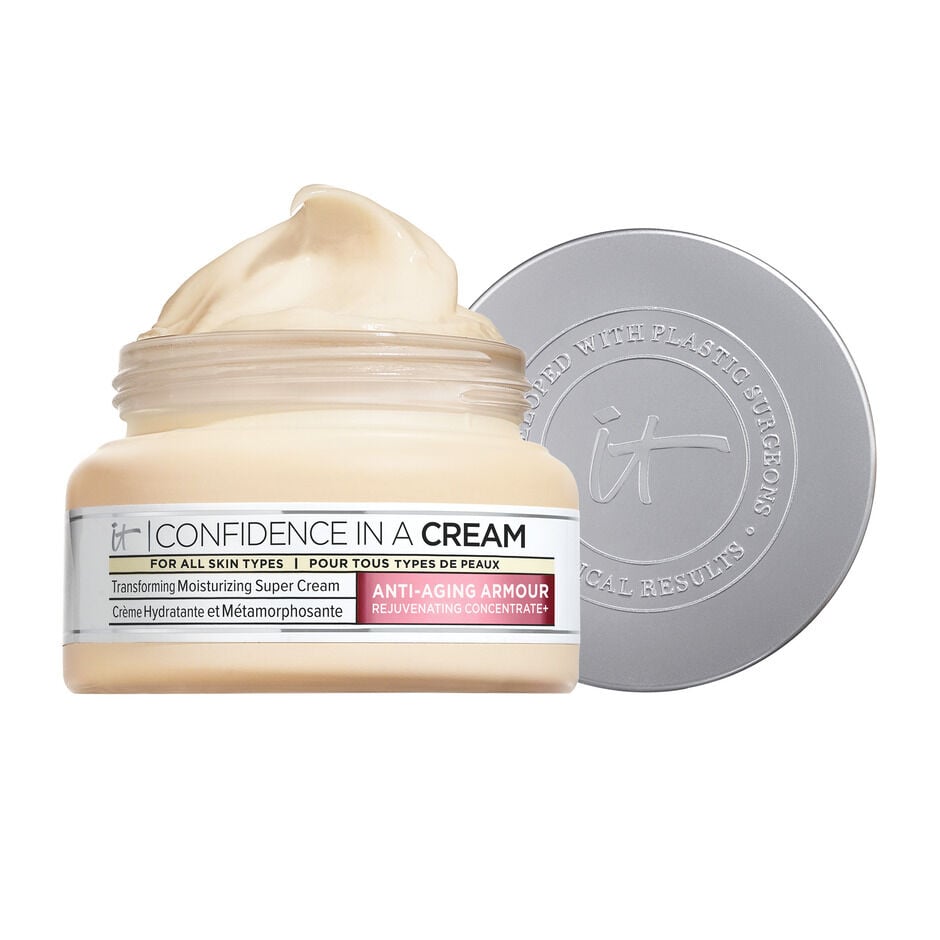Rise by Six: Your Daily Dose of Inspiration
Explore insights and stories that elevate your day.
Moisturizer Mysteries: What’s Really Inside That Jar?
Uncover the secrets hidden in your moisturizer jar! Dive into the surprising ingredients and what they really do for your skin.
Unlocking the Secrets: What Ingredients to Look for in Your Moisturizer
Choosing the right moisturizer can be overwhelming, especially with the myriad of options available on the market. When unlocking the secrets to effective hydration, it’s essential to look for specific ingredients that cater to your skin type. For instance, hyaluronic acid is renowned for its ability to retain moisture, making it a powerful ally for those with dry skin. Similarly, glycerin helps to draw moisture from the environment into your skin, providing a plump and healthy appearance. Other beneficial ingredients include ceramides, which bolster the skin's barrier function, and shea butter, known for its rich fatty acid content that nourishes and soothes.
Moreover, keeping an eye on active ingredients can significantly enhance your skincare routine. Look for moisturizers infused with peptides that promote skin elasticity and reduce the appearance of fine lines. Additionally, those with antioxidants, such as vitamin C or green tea extract, can protect the skin from environmental stressors and promote an even skin tone. Always check for non-comedogenic labels if you have oily or acne-prone skin, as these products won’t clog your pores.

The Truth Behind Moisturizer Labels: What Do Those Ingredients Mean?
Understanding moisturizer labels can be a daunting task, especially with the myriad of ingredients that often seem foreign and confusing. Many products boast about their hydrating properties and feature terms like 'humectants,' 'emollients,' and 'occlusives.' Humectants such as glycerin and hyaluronic acid are designed to draw moisture into the skin, while emollients like shea butter and jojoba oil work to soften and smooth the skin's surface. Lastly, occlusives such as petroleum jelly or beeswax create a barrier on the skin to prevent moisture loss. Familiarizing yourself with these terms can empower you to choose a moisturizer that best suits your skin type.
Another aspect to consider when deciphering moisturizer labels is the order of ingredients. Ingredients are listed in descending order by weight, meaning that the first few components on the list are present in the highest concentrations. If a product's first five ingredients primarily consist of fillers or fragrances, it may not be as effective as those with potent moisturizers at the top. Furthermore, be on the lookout for parabens and sulfates, which can be irritating for some skin types. Always remember that your skin is unique, so understanding what goes into your moisturizer can help you make more informed choices.
Do You Really Need That Moisturizer? Debunking Common Myths
When it comes to skincare, the debate around the necessity of moisturizer is rife with **myths** that often confuse consumers. One common misconception is that those with oily skin do not need a moisturizer. In reality, all skin types require hydration to maintain its barrier function. Skipping moisturizer can lead to increased oil production as the skin becomes dehydrated, ultimately resulting in breakouts. Do you really need that moisturizer? Yes, regardless of your skin type, you should incorporate a suitable moisturizer to keep your skin balanced and healthy.
Another prevalent myth is that using a moisturizer will clog your pores and cause acne. However, this is a misunderstanding that overlooks the benefits of finding the right product for your skin. Many modern formulations are non-comedogenic, meaning they are designed not to block pores. Additionally, moisturizers can help soothe inflammation and irritation, which are often contributors to acne. Embracing the right moisturizer is essential, so remember that moisturization is crucial for maintaining skin health, not just a luxury.